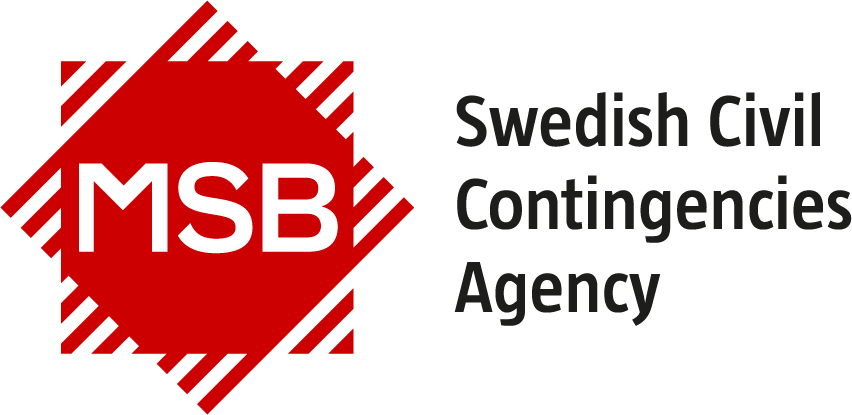Access to water during a crisis
Water shortages are much more serious than food shortages. That's why it's important to have a plan for securing access to water in all situations, both for drinking and cooking. There are also some tips when it comes to hygiene and toilets.
Drinking water
Plastic bottles, a standard freezer and the ability to boil water will go a long way. Expect an adult to need three to five litres of water per day. This should be enough for drinking, cooking and basic hygiene. If you have a dog, cat or small animal, they also require water.
Tapping into drinking water
If the power cuts out, water pumps may stop working after a while. You will need to have extra water stored for your family and pets. A smart way to prepare is to freeze water in plastic bottles. The bottles can then be used both as spare drinking water and as cold packs in the freezer during extended power outages. Remember not to fill the bottles all the way to the top, as they will crack when the water freezes.
Drinking water in cans
Use clean, firmly sealed storage containers intended for drinking water. Fill them with good quality drinking water, such as municipal drinking water. Store the water in a dark place and as cool as possible.
Guidance for cleaning and other handling of cans is available from the Swedish National Food Agency.
Store water in a dark and cool place
It’s not possible to say how long water can be stored. It depends on the prevailing conditions, and you must decide for yourself whether you want to drink the water. You can do this by observing, smelling, and tasting the water. In good conditions, bottled drinking water can stay fresh for many months.
Make it a habit to check the water regularly once or twice a year. Change the water in your drinking water supply if necessary; it may be used for irrigation, for instance.
Fetching water
If there is a shortage of water, the municipality may place water tanks at specific locations where you can collect water in your own storage containers. You should expect to collect limited quantities, as the water should sustain as many people as possible. In an emergency, you can collect water from rivers, lakes, and ponds. In this case, fetch water from places where the water flows or that are far from the shore. Always boil water that you have collected outside.
Boiling water
In crisis situations, contaminated water is one of the most common vectors of gastrointestinal diseases. If you suspect that your tap water contains bacteria, viruses or parasites, you may need to purify it. The same applies to water you have collected outside, or if you use snow and ice. It should be boiled before you can drink it or use it in cooking.
- Boil the water to a roiling boil. Bacteria, viruses and parasites die when the water is boiled.
- Pour the boiled drinking water into a clean storage container or bottle and let it cool.
There are also other water purification methods, such as tablets and filters. These methods can remove harmful micro-organisms from the water, but do not help against chemical contaminants.
Toilet and hygiene
If the water supply is interrupted due to a power cut or other reasons, you cannot flush the toilet. If you continue to use the toilet, the sewage system may quickly become blocked. Be prepared to dispose of waste in other ways and maintain good hygiene. Of course, depending on where you live, it may be easiest to relieve oneself outside.
When you need to urinate
Urinate in the toilet but put discard toilet paper in a garbage can or bucket with a lid. Use a lid that seals tightly, so the odour doesn't spread to the rest of the house.
When you need to defecate
You may find it easy to put a plastic bag or bin liner in the toilet and sit on it as usual. When you're done, cover it with, for example, composting litter or sawdust and seal the bag. You can also use a latrine barrel or other bucket with a tight-fitting lid. Your municipality will provide information on how to dispose of your waste.
Some examples of local toilet solutions
- The municipality providing special facilities.
- Providing portable toilets of the type commonly used at festivals and bathing sites.
- The municipality can collect latrine barrels from households. If you are a private individual, you will need to get one of these barrels.
Contact your municipality for more information!
Checklist: Water
- Water storage containers with caps.
- Bottles.
- Buckets with lids.
- Plastic bottles for freezing water (do not fill all the way to the top, otherwise the bottle may crack).
- Mineral water.
- Boiling capabilities.
Checklist: Hygiene
- Toilet paper.
- Wet wipes, hand sanitiser.
- Diapers, menstrual pads.
- Plastic bags or garbage bags.
- Compost litter or sawdust.
- Bucket with a lid.
Checklist: Prepping on a tight budget
- Instead of tossing empty plastic bottles, clean them thoroughly, fill them with water, and store them in a cool place or in the freezer.
- Rinse milk cartons thoroughly, fill them with water, and stack them in the freezer. They can also serve as ice packs.
- Buy a few bottles of mineral water when they’re on sale.
- A simple plastic bucket with a lid is a good way to fetch water.
- Buy all kinds of drinks when they are on sale. Fruit drinks, light beers, and many types of milk have a long shelf life.
